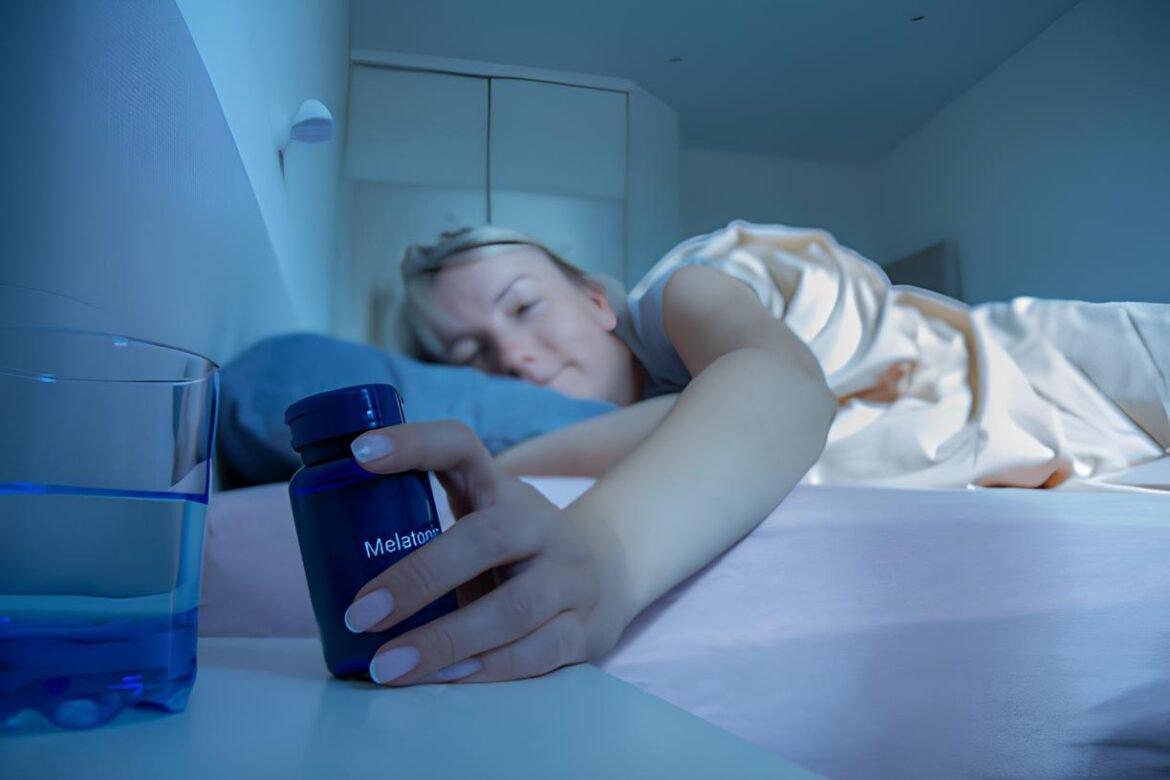There’s a quiet frustration many of us share on restless nights: despite exhaustion, sleep slips through our fingers, evading even the longest hours in bed. Often, melatonin is the first thing we turn to—a natural sleep aid that promises to reset racing minds and tired bodies. Yet, nestled within the buzz around this popular supplement are widespread misunderstandings that might actually be keeping you awake.
Before you reach for that bottle again, it’s worth asking—could some of what you believe about melatonin be working against your best rest? Let’s unravel common melatonin myths that could be sabotaging your sleep and discover how to harness this hormone properly for true tranquility.
Melatonin Is a Sleeping Pill
It’s easy to think of melatonin as just another over-the-counter sleep pill, but this is far from accurate. Melatonin is a hormone naturally produced by your body, specifically in the pineal gland, which signals to your brain that it’s time to prepare for sleep. Unlike sedative medications, it doesn’t force you into unconsciousness or knock you out like a tranquilizer.
Instead, melatonin helps regulate your circadian rhythm, the internal clock that tells your body when to be awake and when to rest. Treating melatonin like a sleeping pill can lead to unrealistic expectations and disappointment if you don’t fall asleep immediately.
More Melatonin Means Better Sleep
It might seem logical to think that taking higher doses will improve sleep faster, but in reality, taking too much melatonin can backfire. Excess melatonin may cause grogginess, headaches, or even disrupt your natural sleep-wake cycle.
Many supplements contain vastly different doses—sometimes far exceeding the tiny amounts your body produces—without clear guidance on what’s effective. Research generally supports low doses, often between 0.3 mg to 3 mg, as more beneficial than higher amounts.
Think of it like watering a plant: a gentle, consistent amount nurtures growth, but flooding it can drown the roots.
Melatonin Works Instantly
Melatonin doesn’t act like caffeine, where effects peak quickly and dramatically. Instead, the hormone takes time to signal your body and brain, gradually easing your system into sleep readiness.
Timing is crucial. Taking melatonin too close to bedtime—or worse, after you’re already lying awake—may reduce its effectiveness or even worsen insomnia in some cases.
Understanding this subtle timing can prevent frustration and help you develop a smoother path into restful nights.
How Melatonin Actually Works
Your body’s melatonin production naturally rises in the evening as daylight dims, reaching peak levels during the night to foster deep sleep phases. In the morning, exposure to natural light suppresses melatonin, signaling it’s time to wake.
When supplemental melatonin is introduced, it aims to mimic this natural rise, gently nudging your internal clock toward sleep. It’s not a sedative but rather a messenger that helps align your body’s rhythms, especially if they’re out of sync.
This is why melatonin is most helpful when dealing with sleep issues caused by circadian disruptions, such as jet lag or shift work—not as a magic cure for general insomnia.
Using Melatonin the Right Way
To make melatonin an effective ally instead of a frustrating foe, consider these guidelines:
- Start with low doses: Begin with 0.3 mg to 1 mg and only increase if needed under guidance.
- Time it right: Take melatonin 30 to 60 minutes before your planned bedtime.
- Create a dark environment: Bright artificial light suppresses melatonin production. Use blackout curtains and limit screen time before bed.
- Use short-term: Melatonin is best for occasional or temporary use, not as a nightly habit for extended periods.
- Consult healthcare providers: Especially important if you’re pregnant, nursing, on medications, or have chronic health issues.
Pair melatonin with a relaxing pre-sleep routine like gentle stretching, meditation, or reading a physical book to help signal your body that bedtime is near.
Boosting Natural Melatonin Levels
Instead of relying solely on supplements, think about natural ways to enhance your body’s melatonin production:
- Limit evening light exposure: Especially blue light from phones, tablets, and TVs, which inhibit melatonin.
- Get plenty of natural daylight: Spend time outdoors to strengthen daytime circadian cues.
- Mind your diet: Foods rich in melatonin or its precursors—like tart cherries, walnuts, or oats—can support regulation.
- Keep consistent sleep-wake times: Regular routines help stabilize your internal clock.
For a deeper dive into creating a sleep-friendly environment, our post on how to create a calming bedroom sanctuary for better sleep and relaxation offers practical tips to transform your space.
Frequently Asked Questions
Is melatonin safe for children?
Some pediatricians recommend melatonin for children with sleep disorders under medical supervision, but it’s important to consult your healthcare provider before use.
Can melatonin cause dependence?
Melatonin is not considered addictive, but habitual reliance without addressing underlying sleep issues may develop.
Why do some people feel groggy after taking melatonin?
This can happen if the dose is too high, taken at the wrong time, or combined with other sedatives.
Can melatonin help with jet lag?
Yes, taking melatonin at your destination bedtime can support adjustment of your internal clock.
Rethinking Melatonin: A Path to Better Nights
Melatonin isn’t a quick fix pill or a one-size-fits-all solution. It’s a nuanced hormone that plays a vital role in your body’s natural sleep rhythm—when understood and used correctly, it can gently guide you toward more restful, restorative nights.
Instead of chasing sleep with high doses or improper timing, consider melatonin as one part of a holistic approach. Pay attention to your sleep environment, daily habits, and underlying causes of restlessness. Like tuning a delicate instrument, your sleep requires care, patience, and smart adjustments—not shortcuts.
If you’re curious about additional natural ways to enhance your nightly rest and energy levels, exploring how to boost your natural energy without caffeine this summer might inspire thoughtful changes that ripple across your wellbeing.

